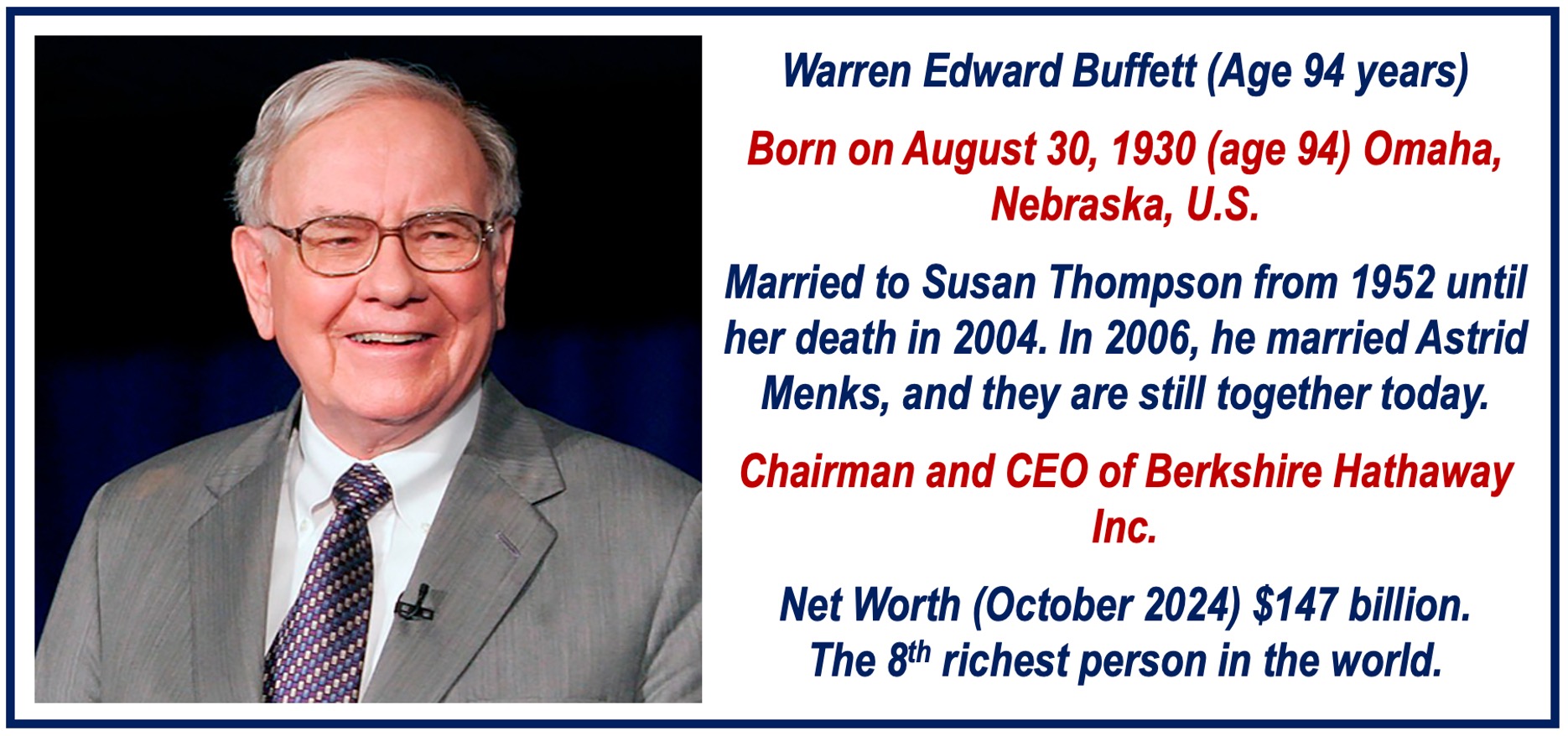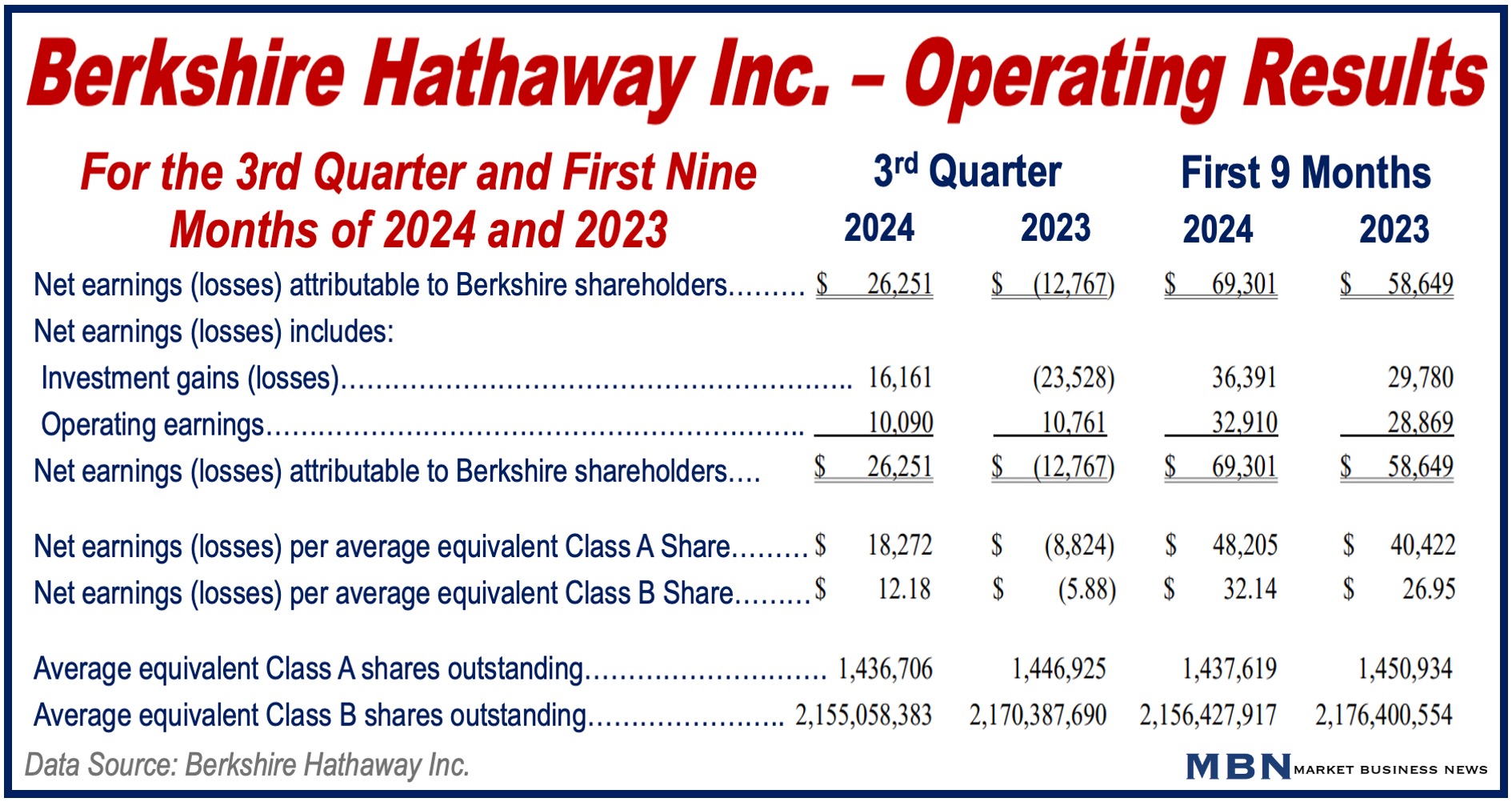Thought of by many as the most influential investor of our time, Warren Buffett has recently made significant adjustments to Berkshire Hathaway’s investment portfolio.
Warren Buffett is the Chairman and CEO of Berkshire Hathaway. He is also recognized as one of the company’s largest shareholders and has led it for decades.
In the third quarter of 2024, Berkshire’s cash reserves soared to a record-breaking $325 billion. The company achieved this through a mix of large stock sales and a pause in share buybacks.
The company’s shift comes amidst a stock market rally and economic uncertainties – especially with the US presidential election only three days away. Economists, investors, and the media are currently raising questions about Buffett’s cautious approach.
What could be the reasons behind these moves, and how do they align with Buffett’s investing strategy and philosophy? What do they mean for Berkshire Hathaway and its stakeholders?
Building a Cash Fortress: Berkshire’s Record-High Reserves
In the second quarter of this year, Berkshire Hathaway’s cash reserves stood at $276.9 billion. One quarter later they hit an all-time high of $325 billion.
This extraordinary amount of liquidity is mainly due to massive stock sales in companies such as Bank of America and Apple, two of Berkshire’s largest holdings.
During this period, Apple’s share price rose by 10%, yet Buffett chose to reduce his company’s stake by a quarter. This is now his fourth successive quarter of Apple sales.
Most of Berkshire’s cash is in short-term US Treasury bills. The company’s cash hoard acts as ‘dry powder,’ that is, funds that can be rapidly deployed to seize favorable investment opportunities.
Buffett has always had a value-oriented approach to investments. He often prefers to wait patiently for assets to reach attractive valuations before investing rather than rushing into an overvalued market.

Stock Sell-Offs: Apple and Bank of America
Buffett’s decision to sell Apple and Bank of America stocks signals a cautious approach amidst high valuations.
Apple was once one of Berkshire’s largest holdings. Since the end of last year, Apple’s share count in its investment portfolio has plummeted by two-thirds.
Even though Apple stock has performed well, Buffet may feel that it is overvalued in the current economic landscape.
Since the middle of this year, Berkshire has cashed in more than $10 billion worth of Bank of America shares.
These sales could be motivated by several factors, including:
-
High Valuations
Apple and Bank of America may be overvalued in today’s market. Selling at high prices allows Berkshire to lock in gains. This aligns with Buffett’s value investing approach.
-
Potential Capital Gains Tax Increase
If Buffett anticipates tax hikes on capital gains, it makes sense to sell now.
-
Diversification
Reducing large positions in Apple and Bank of America balances the portfolio and lowers concentration risk. Although a possibility, experts say that if this were the case, it is unlikely he would move so fast.
-
Market Volatility
With market unpredictability, holding cash provides flexibility to adapt to changes.
-
Opportunity for Future Acquisitions
More cash reserves enable Berkshire to seize undervalued assets if the market declines, aligning with Buffett’s long-term strategy.
-
Preparation for Market Corrections
Cash allows Berkshire to buy quality assets at favorable prices during potential market corrections.
A market correction is a temporary decline in stock prices that may occur after a period of price increases, allowing prices to “correct” to more realistic levels.
Pausing Stock Buybacks: The Impact on Shareholders
Buffett has traditionally used stock buybacks to add value for shareholders by repurchasing shares he sees as undervalued.
However, in the second quarter of this year, buybacks slowed to $345 million and then to zero in the third quarter as Berkshire’s stock hit record highs.
Buffett had indicated before that buybacks are not worthwhile unless stock prices are below intrinsic value. Class A shares rose 25% this year.
Operating Challenges Amid Cash Strategy
Berkshire’s operating profits dropped 6% to $10.1 billion due to insurance losses from natural disasters. Energy and rail segments, however, improved.
Buffett’s focus remains on capital preservation and patience, holding cash to seize future investment opportunities at better valuations.

What This Means for Investors
For investors, Buffett’s recent strategy may serve as a reminder of the importance of patience and caution.
As we can see from his willingness to sell high-performing stocks like Apple and Bank of America to secure liquidity, he values flexibility over immediate gains.
His actions could be interpreted as preparing for potential economic downturns or simply waiting for more attractive investment opportunities.
Final Thoughts
Warren Buffett’s Berkshire Hathaway is positioning itself cautiously, with a record cash reserve and selective divestments.
His strategy shows a strong commitment to finding investments that are truly worth their price and being prepared to act on good opportunities when they come up, highlighting the importance of patience and self-control in investing.
